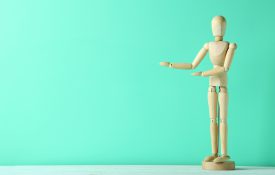-

People Link Body Shapes With Personality Traits
Our first impressions of the personality traits of people we’ve just met may depend on their body shape.
-
There’s a Downside to Attending an Academically Selective School, Study Says
When sending their children to school, parents will often aim for schools with high scores and challenging programs, but according to a new analysis of data from Project TALENT, selective schools with a higher average achievement level may actually exert a negative influence on students' long-term success. The nationally representative, longitudinal study of over 377,000 high school students found that while students who attend socioeconomically advantaged high schools tend to complete more schooling, earn higher annual incomes, and work in more prestigious jobs 11 and 50 years later, those who attend selective, high-achieving schools tend to experience the opposite.
-
How Children Learn to Recognize Faces
“I’m very, very good at recognizing faces,” said Kang Lee, a professor of applied psychology and human development at the University of Toronto, who studies the development of facial recognition skills in children. If he has met a person once, he said, he will recognize that person two or three years later. “One encounter for me is sufficient, my brain has encoded it.” But young children take years to master this skill. And this is a holiday season when we mess around with faces. For those just developing the ability to recognize faces, Halloween masks, costumes, fake noses, false beards, wigs and elaborate makeup present special challenges.
-
Your Lonely Child’s Path to a Happier Life
Many children come home from school around this time of year with a lament no parent wants to hear: “Nobody likes me.” While childhood inflicts emotional bumps and bruises on most people, feeling rejected by playmates and peers can be particularly painful, according to several recent studies. Left unchecked, that kind of exclusion can trigger self-doubt and anxiety, undermining a child’s well-being and school performance. --- Children’s patterns of relating to others begin forming by 3 or 4, and remain remarkably stable if nothing is done to change them, says Mitch Prinstein, author of “Popular,” a recent book on forming positive social bonds.
-
How to Harness Your Anxiety
Anxiety has long been one of the most feared enemies in our emotional canon. We fear its arrival, feel helpless and trapped under its spell, and grant it power to overtake us in new, exciting and challenging situations. But what if we’ve been going about it all wrong? Research shows that anxiety can actually be a pathway to our best selves. A range of new neuroscience, along with ideas from ancient philosophy, Charles Darwin, early social scientists and positive psychology, have all pointed in this direction. To be sure, severe anxiety can be debilitating. But for many people who experience it at more moderate levels it can be helpful, if we are open enough to embrace and reframe it.
-
Science confirms what the heart already knows: Hugs really do make you feel better
Feeling down in the dumps? Stressed? A little off-kilter because of some disagreement? Hug it out! A new study suggests that just reaching out and touching someone -- consensually, of course -- can reduce bad feelings associated with the typical ups and downs of our social interactions. The study from the Department of Psychology at Carnegie Mellon University, published this week in PLOS ONE, looked at the social interactions of more than 400 people over two weeks. A summary of their daily activities, moods and physical interactions revealed a causal link between emotional states, conflicts and the number of hugs a person gave or received.

